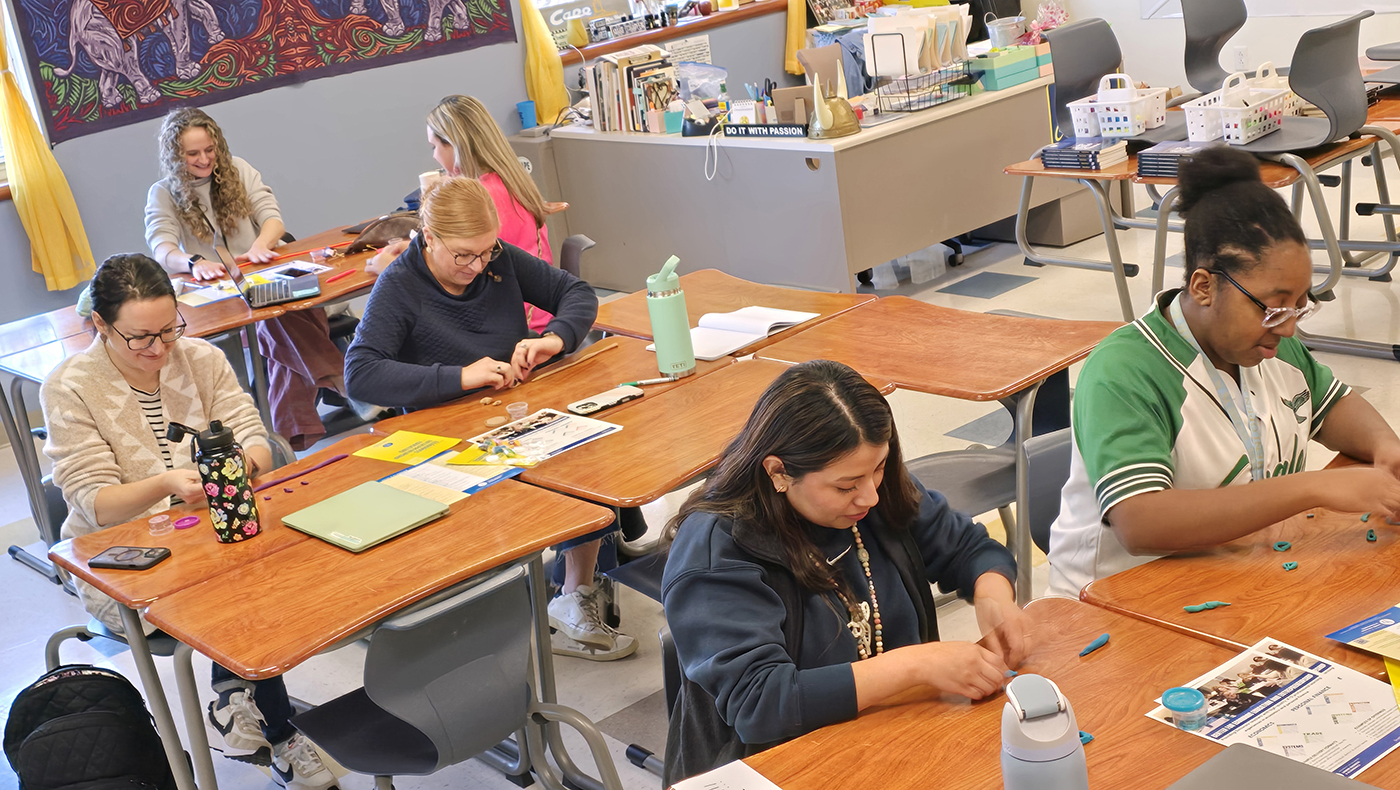Editor’s note: This article was written by Kim Asarta.
What do Play-Doh and economics have in common? More than you might expect! While one is a childhood favorite, and the other is often seen as complex, they create a powerful tool for hands-on learning.
The Center for Economic Education and Entrepreneurship (CEEE) at the University of Delaware transforms teacher training, one Play-Doh creation at a time. At the heart of this hands-on approach are Instructional Designer Amy Krzyzanowski and Assistant Director Scott Bacon, whose latest work–newly developed economics model lessons for grades 2, 3, 5, and 7–aligns seamlessly with Delaware’s state standards. Through several rounds of an interactive Play-Doh simulation, abstract economic principles are transformed into tangible, memorable, experiences. Helping teachers gain a deeper firsthand understanding of the concepts embedded in the new lessons.
At Caesar Rodney School District’s recent Teachers Teaching Teachers (T3) in-service day, educators experienced Play-Doh economics firsthand. During a lively session, 2nd- and 3rd-grade teachers molded economic concepts, literally, by racing to create as many Play-Doh donuts as possible in a set time. The incentive? A chance to win a T-shirt! This fun competition reinforced the following fundamental economic principle: incentives influence behavior.
“I really enjoyed the modeling of the economics lessons for 2nd graders,” shared L. Graves, a 2nd-grade teacher. “I now have a better grasp on the standards and feel prepared to teach these wonderful lessons!”
Krzyzanowski explains, “The Play-Doh activity serves as a segue to discussing Delaware’s vertically aligned curriculum, allowing teachers to see how economic concepts are introduced and built upon across different grade levels.” Through this activity, teachers deepen their understanding of the economics they teach and see how their instruction fits into the broader curriculum.
The energy continued at Cape Henlopen School District, where 7th-grade educators explored microeconomics, macroeconomics, economic systems, and international trade with Play-Doh activities. “The economic training we attended was perfectly timed,” said J. Dutton, a 7th-grade teacher. “Most of us are new to teaching this subject, and the presenter made it engaging—even at the end of a PD day! The resources were immediately applicable.”
Bacon emphasized, “We want teachers to feel confident in teaching economics. By experiencing these lessons firsthand, they gain clarity on expectations and recognize the importance of continuity in economic education.”
Play-Doh economics isn’t just for teachers of younger students, it’s making an impact at the high school level too. As students are starting to plan their next steps after graduation Krzyzanowski explained, “College tuition can be very expensive but, hopefully, leads to a higher income and greater job satisfaction.” Juniors and seniors from Devon Preparatory School used Play-Doh to learn about human capital during a field trip to Alfred Lerner College of Business and Economics.
Economic education doesn’t have to be intimidating; it can be hands-on, engaging, and immediately applicable. Thanks to the efforts of the CEEE team, teachers across Delaware are gaining confidence, resources, and innovative strategies to bring economics to life in their classrooms. And if that involves a little Play-Doh along the way? Even better!




